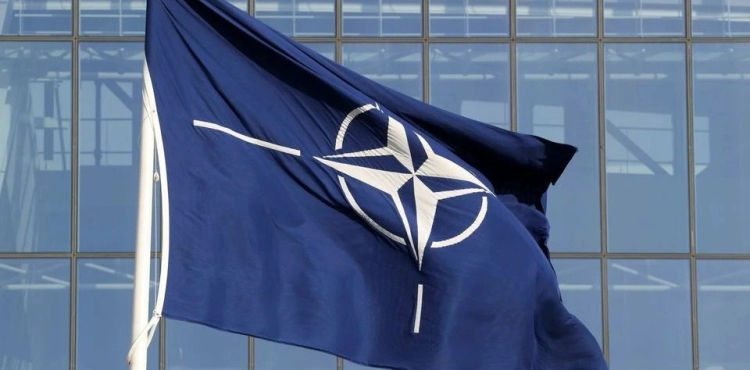NATO member states discussed Tuesday ways to speed up shipments of weapons and ammunition to Ukraine during a meeting in Brussels, during which they discussed providing Kiev with fighter jets to enable it to resist the Russian invasion.
NATO Secretary General Jens Stoltenberg said before a meeting of the "Ramstein Group" that "providing the Ukrainians with the weapons that were promised to preserve their ability to defend themselves is a priority."
All decisions regarding the supply of weapons to Ukraine are taken within this group, which was formed and chaired by the United States, and in which about 50 countries participate. Most of its meetings are held at the American base in Ramstein, Germany.
"We will provide the Ukrainians with the means to survive and advance during the spring counteroffensive," said US Secretary of Defense Lloyd Austin. While he talked about artillery, anti-aircraft defense systems and tanks, the US official did not mention female fighters in the upcoming arms shipments.
For his part, Stoltenberg stressed that "the female fighters are not the most pressing issue, but the discussion is ongoing" about it.
For his part, Ukrainian Defense Minister Oleksiy Reznikov insisted in his own way on this request by referring to the cameras to a pocket handkerchief with one of the fighter planes painted on it.
One of the participants in the meeting said, “He seems confident of himself, but the Ukrainians know full well that they will not get fighter jets for a year.
German Defense Minister Boris Pistorius said in this regard, "Everyone understands that the issues of air defense and re-supplying (Ukraine) ammunition are more important at the present time than discussing sending fighters."
Pistorius announced that the German industry would re-launch a production line of ammunition for the Gibbard anti-aircraft defense tanks.
He pointed out that "contracts have been signed with the manufacturers and we will immediately resume our production at Rheinmetall of Gibbard ammunition."
According to the German daily "Sueddeutsche Zeitung", the first contract provides for the delivery of 300,000 pieces of ammunition to Kiev, starting in July.
After the meeting, several donations were announced, including France and Italy providing the Mamba (SAM-T) air defense system, similar to the Patriot system.
The Mamba system is a weapon worth 500 million euros. Likewise, France will produce 155-millimeter shells in cooperation with Australia, and will deliver the promised AMX-10 tanks to Ukraine in the coming days.
The timetable for sending weapons to Kiev and training Ukrainian units in Europe has become a major bet in this war.
For his part, Ukrainian Defense Minister Oleksiy Reznikov, who is in Brussels, stressed, in a message via his Twitter account, the need to secure sufficient stocks of ammunition, maintain equipment, protect Ukrainian airspace and strengthen the "tank alliance".
Ukraine requires long-range fighters and missiles, something President Volodymyr Zelensky reiterated when he visited London, Paris and Brussels last week.
However, fear of being drawn into the conflict prevents a number of allies from providing Ukraine with this equipment. And several delegations confirmed that "it is not expected that a decision will be taken on Tuesday regarding the fighters."
In turn, Stoltenberg indicated that "support for Ukraine has evolved since the beginning of the conflict. It will discuss providing it with fighter jets." However, he added, "It will take time, and the short-term priorities are the promised ammunition and weapons, along with fuel and spare parts."
French President Emmanuel Macron stressed, after his meeting with his Ukrainian counterpart, that "we must prioritize deliveries that are useful to enable the Ukrainians to resist and carry out operations, rather than commitments that will arrive too late."
Ammunition for the Ukrainians has become a priority and problem for the Allies.
In this context, Stoltenberg warned that "the current rate of Ukraine´s use of ammunition is much higher than our production rate." "This drains our reserves and puts our defense industries under pressure," he added, calling for increasing production rates on the one hand and investing in production capacities on the other hand.
Jens Stoltenberg praises, as a role model, the new contracts that extend over the years, which the United States, France and Norway signed with defense companies, allowing them to invest in increasing production capacity.
And Estonian Prime Minister Kaja Kallas had suggested, Thursday, during the summit of European Union heads of state and government, that member states use a mechanism similar to that used to purchase vaccines, with the aim of pushing the defense industry to produce more.
NATO is looking at ways to speed up the delivery of equipment to Ukraine












